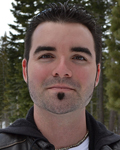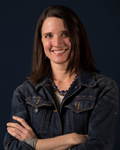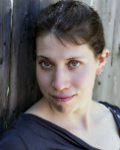Starting a blog can help you distinguish your scientific approach, engage with fascinating individuals, give back to the public, enjoy creative challenges, and more.
As this panel demonstrates, there is no one path you need to follow to begin writing online.
In fact, while one of the speakers became inspired to write for lay audiences after getting 14 year-olds intrigued about zombie brains, another panelist realized blogging could help her transition from a scientist to a full-time journalist.
Speakers

Scott Thompson, PhD
Scott Thompson is the chair of the department of physiology and professor of physiology and psychiatry at University of Maryland School of Medicine. His research focus is primarily on the biological basis of depression. Using realistic animal models of depression, he has formulated a new way of thinking about what's wrong in the depressed brain, enabling his lab to develop a novel class of drugs as rapidly acting antidepressants. He has served in leadership positions at SfN as Program Committee chair and, currently, as Public Education and Communication Committee chair. One of his goals in this capacity is to promote the ability of all SfN members to communicate their science to the general public.

Bradley Voytek, PhD
Bradley Voytek is an associate professor in the department of cognitive science, the Neurosciences Graduate Program, and the Halıcıoğlu Data Science Institute at the University of California, San Diego. He is an Alfred P. Sloan Neuroscience Research Fellow and National Academies Kavli Fellow, as well as a founding faculty member of the UCSD Data Science program and Halıcıoğlu Data Science Institute. His research centers around the computational role that neural oscillations play in coordinating information transfer in the brain, and combines large-scale data mining and machine learning techniques with hypothesis-driven experimental research.

Anne Churchland, PhD
Anne K. Churchland is an assistant professor at Cold Spring Harbor Laboratory. Churchland received her PhD in neuroscience from the University of California, San Francisco and did a postdoctoral fellowship at the University of Washington in the physiology and biophysics department. In starting her own laboratory, Churchland began studying decision-making using rodent models, to take advantage of emerging tools for circuit dissection. Her laboratory has been a major player in bringing behavioral paradigms to rodents that have been successful in elucidating neural mechanisms in humans and primates, including perceptual decision-making and multisensory integration. She is a founding member of the International Brain Laboratory, a collaboration of 21 experimentalists and theorists that aims to generate a brain-wide theory of decision-making.

Douglas Fields, PhD
Douglas Fields is chief of the Nervous System Development and Plasticity Section at NIH National Institute of Child Health and Human Development, as well as the author of the books Why We Snap and The Other Brain. He has previously written on the topic of neuroscience for Outside Magazine and Scientific American, and contributes regularly to The Huffington Post and Psychology Today. Fields’ research focuses on the mechanism that regulate the nervous system in response in response to neural impulse activity during development relative to memory. Another major focus of his research is activity-dependent plasticity of myelin. He received his BA from the University of California, Berkeley, in 1975, an MA in 1979 at San Jose State University, and a PhD from the University of California, San Diego, working jointly in the Medical School and Scripps Institution of Oceanography. He conducted postdoctoral research at Stanford University, Yale University, and NIH.

Bethany Brookshire, PhD
Bethany Brookshire is a science education writer for Science News for Students and the Society for Science and the Public at the blog Eureka! Lab, and runs the blog ‘Scicurious’ at Science News. She is a former research scientist with a PhD in physiology and pharmacology from Wake Forest University School of Medicine, and conducted postdoctoral research at the University of Pennsylvania. She is a winner of the SfN Next Generation Award.
More in Professional Development
3 of 5 articles left
Login
or
Become a Member
to unlock content





